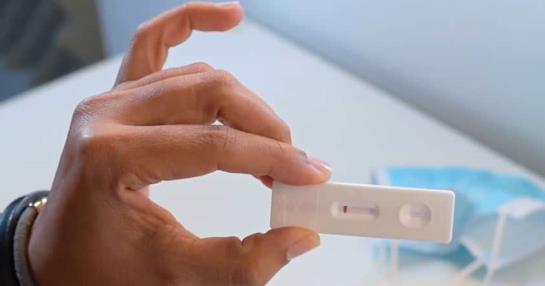Import Parity Prices (PPI) rose 12% in January in the case of diesel, and 5% in gasoline, in line with the strong increase in oil registered in international markets since the beginning of the year. This situation reduces the margin that the Executive Power has to keep the rates frozen as it has been since October, and with this the possibility of an adjustment in the rates gains space.
The Minister of Industry, Omar Paganini, said this Thursday to The Observer that the government “will you see if you can mitigate this” and “how much can you mitigate it”.
“We are seeing what is the best effort we can make. Until now we came with the extraordinary profits of Ancap, that if the oil had been maintained, they could have lasted a little longer. As it is, we have to review well what is the margin we have, “he said.
“(…) We are very concerned about the increase in costs. Not only does oil increase but also the cost of international freight,” added the hierarch.
Since August, the accumulated gap is 18.7% for diesel, and 11.5% for gasoline. These values correspond to the explant price, to which the distribution margins and some taxes must then be added.
As an example, Paganini indicated that the average for Brent oil calculated by Ursea in the last month is US$ 84.27, when in August, the month in which the current price was set, it was US$ 71. The barrel is currently trading around US$90.
An alternative that will be handled is to do a partial correction of the phase shift, but so far it is not defined. The Executive Branch will make a decision between this Friday and Monday.
“The driver of this is a very strong rise in oil this past month, Brent is up 15% and the outlook is for a tough market for oil going forward,” he said.
Since October, four consecutive months ago, the decision to keep prices frozen has prevailed in the Executive Power. This is supported by the extraordinary income that Ancap obtained last year from sales of diesel to UTE for the generation of energy in Brazil, and when the PPI rule indicated otherwise.
This week the president, Luis Lacalle Pou, had pointed out that the country still has “back” to maintain prices and insisted that his government sought to assume “the commitment” to have the cheapest possible prices. “Let’s see what Ursea says,” he added.
In addition, He answered the voices that from the opposition accuse him that it is actually a strategy adopted to gather support in the months prior to the referendum against the law of urgent consideration, to be held on March 27. “If they know so much, let them say the numbers of the 5 de Oro, that’s how we all play,” he said.
On the other hand, the policy of freezing prices has been criticized by various analysts that indicate that in these months the discretionary management of rates was once again present, despite the fact that a rule was created that aims to reduce it.
“A tariff delay continues to accumulate in Ancap, which, sooner or later, will lead to a considerable increase in prices,” wrote the economist Javier de Haedo on his Twitter account this Thursday.
Meanwhile, the Center for Economic Research (Cinve) has indicated that the postponement of the increase in tariffs “it generates a phenomenon of suppressed inflation, and it is sending a confusing signal (to say the least) for the formation of inflation expectations”.
Leonardo Carreno
The December report
The Regulatory Unit for Energy and Water Services (Ursea) published this Thursday the PPI report that corresponds to the last moving month between December 26 and January 25.
This is one of the inputs – along with the Ancap numbers – that the Executive Branch has taken into account since last June to define monthly fuel rates.
What do the numbers show? The PPI explants from the La Teja refinery for the Super 95 gasoline –including taxes and the mixture with bioethanol– determined a price of $63.6 per liter, that is, 8.7% above the $58.49 of December.
For the case of common diesel, the ex-plant price shown by the Ursea PPI –including taxes and blending with biodiesel– is $44.63, 7.6% above the $41.48 of the previous month.
On the other hand, in the case of supergas (LPG), the ex-plant PPI determines a price of $36.16 per liter (equivalent to $65.8 per kg), some $2.87 above the value shown in the previous month’s report ($33.29). .






